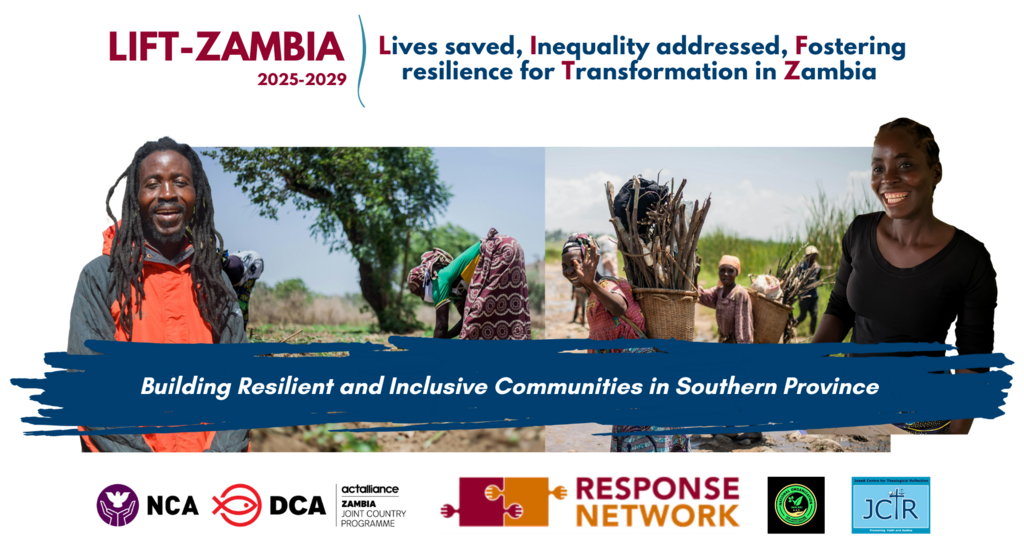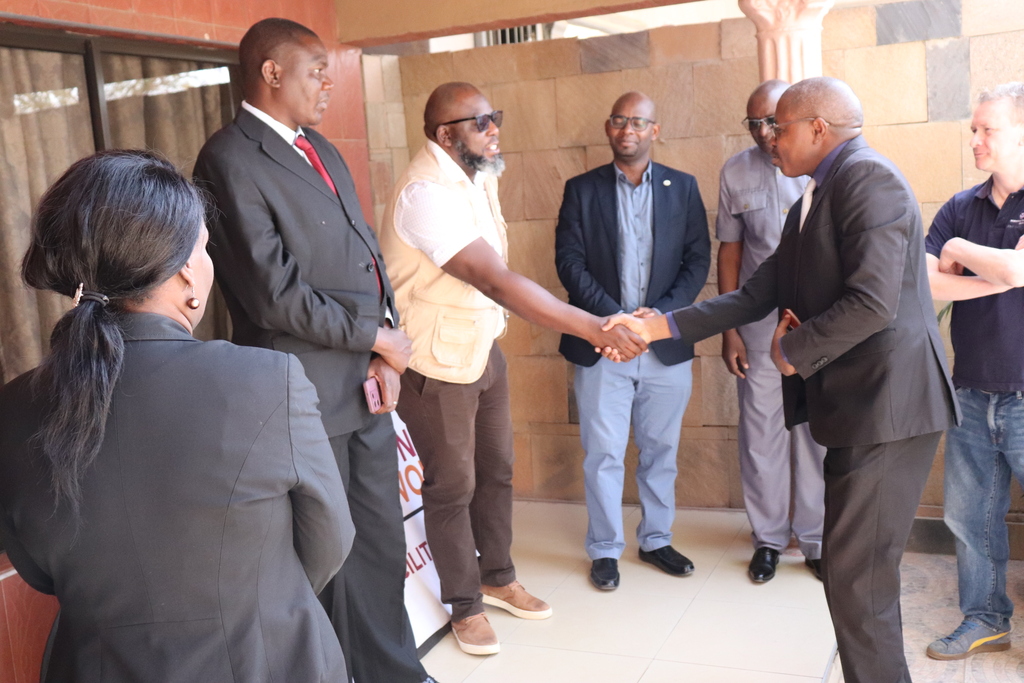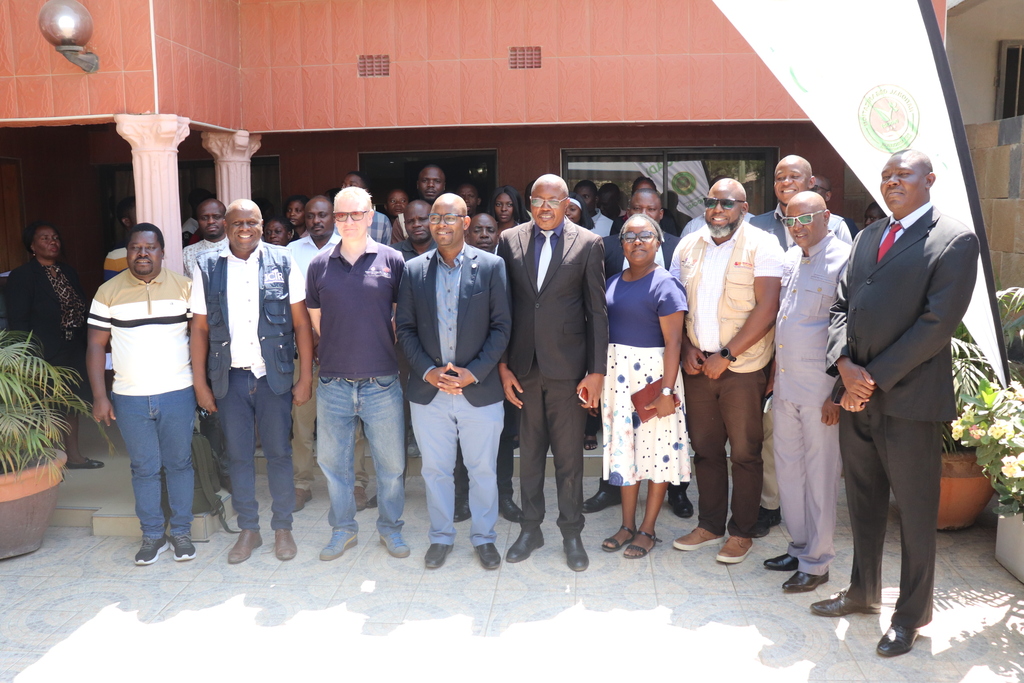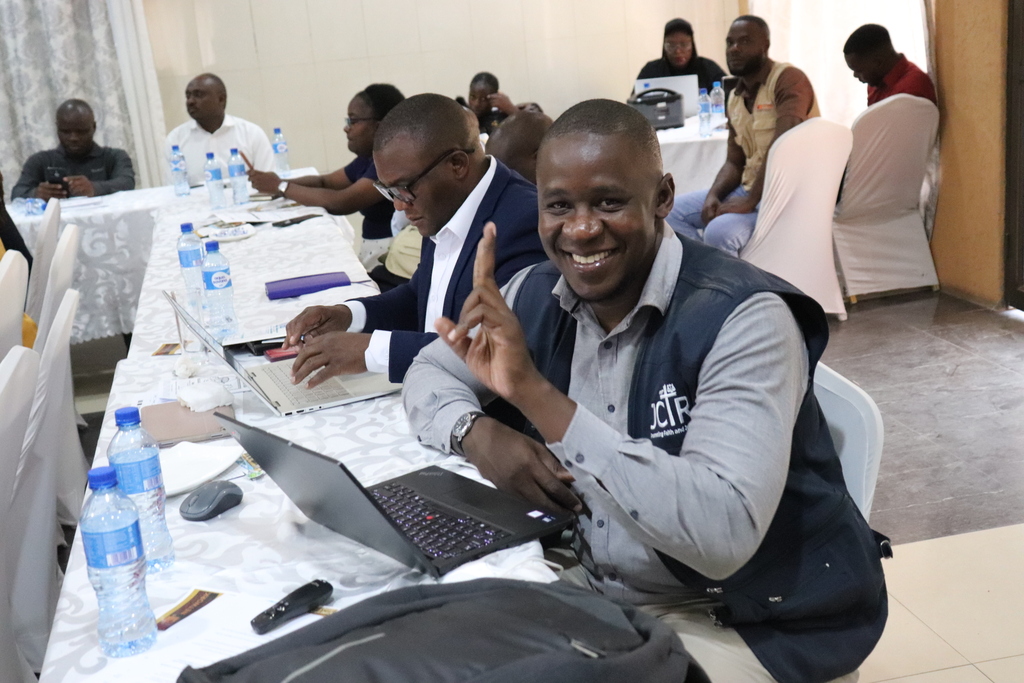
September 4, 2025 - The town of Choma hosted a milestone moment for Southern Province with the official launch of the LIFT-Zambia Programme – Southern Hub. The five-year initiative (2025–2029), coordinated by NOCAD, the Jesuit Centre for Theological Reflection (JCTR), and Response Network with strategic support from the Joint Country Programme of Norwegian Church Aid (NCA) and Danish Church Aid (DCA), is designed to tackle poverty, inequality, and climate vulnerability in Gwembe, Siavonga, Zimba, and Kazungula districts.
A Programme Rooted in Communities
Unlike traditional projects that end without leaving sustainable change, LIFT-Zambia seeks to place communities at the centre of development. With five thematic areas—climate resilience, WASH, gender justice, economic development and food security, and fighting inequality—the programme embraces an integrated, community-led approach.
The launch brought together government officials, civil society partners, media, and community representatives. Their testimonies underscored the urgency of building resilience in a province where 63.5% of people live below the poverty line and climate shocks such as droughts have left many vulnerable.
Strategic Vision from NCA-DCA
Delivering the keynote remarks, Jonathan Lee-Howarth, Country Director of the NCA-DCA ACT Alliance in Zambia, explained that the programme was carefully designed following an open application process that saw nearly 100 organisations apply, of which only 11 were selected. “We wanted to do something very different,” he said, emphasising that the initiative is about addressing multidimensional poverty and inequality, not just short-term project outcomes.
Jonathan stressed that poverty is more than lack of money—it also includes limited access to services, information, and decision-making structures. Likewise, inequality has many faces, from gender disparities to income and civic exclusion.
“Rather than isolate projects, LIFT-Zambia integrates them. We live in a world of complexity where challenges are interconnected, and our response must be holistic.”
He highlighted that the programme aligns with NCA/DCA’s global goals: seeking justice, building resilient communities, and saving lives. Accountability, he said, will remain central — first to citizens, but also to government, donors, and partners.
Baseline studies revealed stark challenges: most households rely on rain-fed agriculture, female-led households face high food insecurity, and only 15% of vulnerable groups participate in decision-making. These findings will shape interventions under LIFT.
Jonathan also reaffirmed JCP’s dual role in long-term development and crisis response, recalling rapid drought relief in 2024, and its ongoing advocacy on tax justice, mineral governance, and environmental justice.
A Government Endorsement
The Guest of Honour, representing the Permanent Secretary for Southern Province, officially launched the programme, praising the integrated hub model as aligned with the Eighth National Development Plan. He urged strong collaboration among government departments and partners to ensure success.
Closing Reflections from JCTR
In his Vote of Thanks, Fr. Daniel Mwamba Mutale, S.J., PhD, JCTR Executive Director, expressed gratitude to government officials, partners, and especially community representatives.
“Your stories remind us why we are here. Today is not just a ceremony — it is a collective pledge to build resilient communities, reduce inequality, and create a more just and sustainable future.”
Fr. Daniel reaffirmed that the Southern Hub would serve as a model of integrated and transformative development, rooted in the voices and participation of the people.
Looking Ahead
With its official launch, the LIFT-Zambia Southern Hub begins its five-year journey of community-led development. Partners and government stakeholders have pledged to walk this path together with integrity, compassion, and a shared vision for an inclusive and resilient Southern Province.


